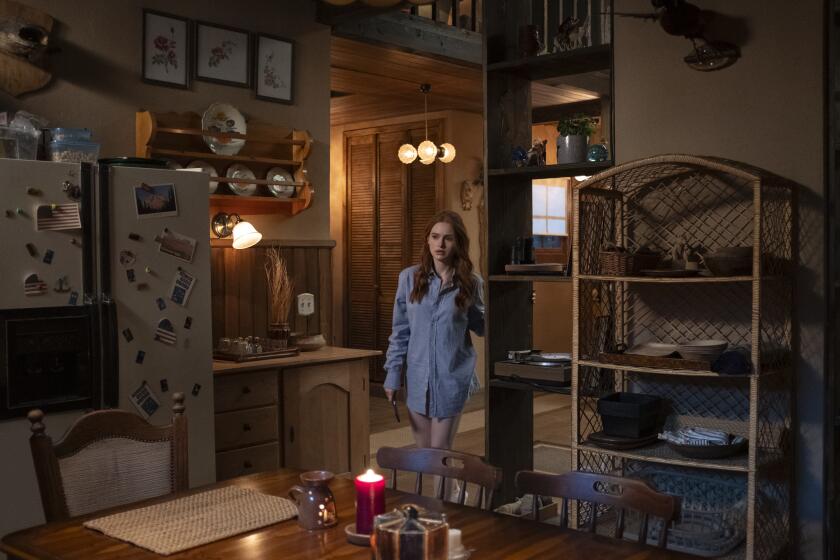CNN Averts Hoax About Bush’s ‘Death’
A false report that President Bush died at a Japanese banquet came within seconds of being broadcast over CNN’s Headline News early Wednesday, spurring renewed efforts on the part of the Atlanta-based all-news network to prevent such hoaxes from making their way to the airwaves in the future.
CNN spokesman Steve Haworth acknowledged Thursday that Headline News anchor Don Harrison did begin to report “tragic” news at 6:45 a.m. (PST) on Wednesday--tragic news that would have been nothing more than a phony tip from a 71-year-old Idaho caller posing as the President’s personal physician.
Before Harrison could finish the sentence, an unidentified supervisor yelled “Stop!” from off-camera. Harrison then corrected himself and read a different report merely stating that the President was ill.
Haworth said that CNN is reinforcing requirments that senior staff members be notified when important bulletins are typed into a centralized computer, used both by CNN and its secondary operation, the Headline News service, which condenses the longer CNN stories into shorter news bites.
It was the unedited information from an unidentified caller, typed into the computer by a CNN employee, that very nearly went on the air.
On Thursday, another CNN spokesman would not confirm whether the editorial personnel responsible for the near-broadcast would be disciplined. “None of that information is available at the present moment,” he said.
But Haworth confirmed that the “physician,” who called with his information that the President had died just three hours after President Bush collapsed at a Japanese state dinner from stomach flu, left his number with the network. CNN subsequently turned it over to the Secret Service, according to Haworth.
The caller was later tracked down, questioned and hospitalized at a private mental facility in Garden City, Idaho, for observation, Haworth said. He was identified in news wire reports as James Edward Smith.
“It’s a perennial hazard on TV these days when instantaneous news is reported as it is happening,” observed retired Los Angeles newscaster Maury Green. “A newspaper has a little more time to check, but a TV network or local station is just more susceptible to a hoax than other media.”
In Los Angeles, where several independent stations subscribe to CNN and its Headline News service, the “tragic” blurt from Harrison was picked up, thus exacerbating the problem in Southern California, according to one CNN source.
The “gatekeepers” who prevent false reports from going on the air can err on the side of caution too, according to Green.
“In 1939, I worked for the Chicago Tribune and we hired a Berlin correspondent named Sigrid Schultz,” said Green.
Schultz, who was instructed to cozy up to the Nazi brass and find out when war was to break out, sent detailed cables to the Tribune as tanks began rolling into Poland, but the paper’s editors declined to replate the front page of the morning editions until the story was confirmed by Associated Press.
“We could have scooped every newspaper in the nation by four hours if we had believed our own correspondent,” said Green.
More to Read
The biggest entertainment stories
Get our big stories about Hollywood, film, television, music, arts, culture and more right in your inbox as soon as they publish.
You may occasionally receive promotional content from the Los Angeles Times.






